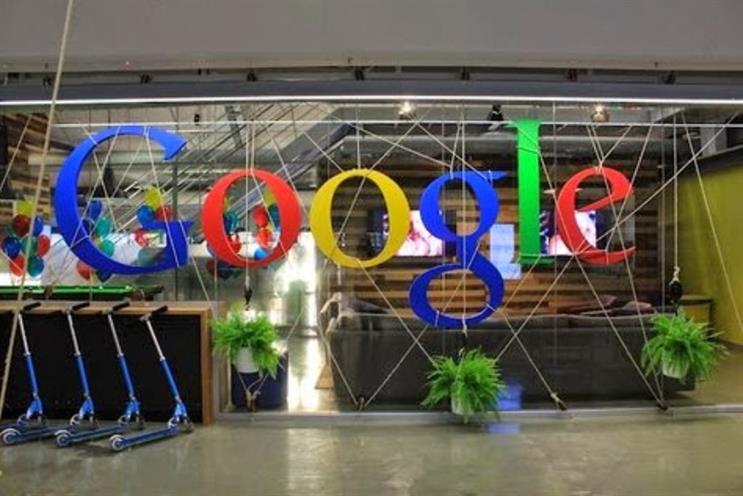
Co-founder and CEO Larry Page after US trading closed yesterday, saying that Google itself would become one of several smaller companies reporting to Alphabet.
Page outlines a number of reasons , but here's a roundup of what industry experts are reading into the announcement.
1. It's all about the money
Page, in his post, claims the new structure will make Google more accountable and transparent.
According to , the new, slimmed down Google will comprise search, ads, maps, apps, YouTube, Android and the "related technical infrastructure". The new Google will likely bring in the bulk of Alphabet's revenue.
The remaining Alphabet businesses will, on the other hand, require investment. Services like Calico, Nest, broadband venture Google Fiber and investment services Google Ventures and Google Capital, and the Google X will all be managed separately, the filing said.
Glyn Britton, managing partner for innovation and strategy at Albion, told Marketing: "[This] allows them to formalise operating at two speeds. Continuing to scale and defend the core revenue engine versus taking bets on the future.
"A parent company suggests that each of those successful bets will now be allowed to blossom into a company in its own right, enabling each of them to get the appropriate effort and resource, rather than competing for corporate development cycles."
Tldr: google profit center and google cost center
— Peter Kafka (@pkafka)
That still leaves out a number of other businesses, like the Boston Dynamics robotics arm. And while Google is claiming greater financial transparency after the restructure, analysts are sceptical.
"It may be overly optimistic at this point to hope for discrete business unit break-outs," wrote Pivotal Research analyst Brian Wieser.
. no, YouTube, Android, and all other core Google efforts will likely continue to be as murky as they’ve always been financially
— Jan Dawson (@jandawson)
2. To avoid bloating
Google was founded in 1998 and has long since lost the "start-up" mentality. Its new ventures - like driverless cars - are more like fiefdoms that are lost in the wider whole.
Google launching Alphabet is a strategy to avoid Yahoo's "peanut butter" deficiency of over-centralization.
— Jeremiah Owyang (@jowyang)
A good example is Motorola Mobility, which Google bought for $12.5bn. The company was spun out awkwardly, and it was never entirely clear where the firm sat within Google's wider operations. The company sold Motorola for $3bn to Lenovo just under a year ago.
Alphabet summarized: New holding company enables distributed innovation, new CEO at Google.
— Jeremiah Owyang (@jowyang)
Any venture that Google acquires, or builds itself, can stand somewhat separate from the core business, making it easier to sell off or spin out. The original Google, meanwhile, can keep focused on its core business of building web services and reaping money from ads.
One problem here is the question of how these new businesses will be funded. As Jackdaw Research analyst , the new CEOs of these companies will be going to Alphabet "cap in hand" for funding.
In his post, Page said: "We will rigorously handle capital allocation and work to make sure each business is executing well." But according to Dawson, it isn't clear that either Page or Sergei Brin have the financial skillset needed to make those investment decisions.
3. To retain talent
Google faces a continuing talent issue, like most Silicon Valley firms. It has to compete with Apple, Facebook and a host of other major tech companies for engineering talent, but also that talent's own entrepreneurial ambitions.
Page's comment on this is telling: "Alphabet is about businesses prospering through strong leaders and independence.
"In general, our model is to have a strong CEO who runs each business, with Sergey and me in service to them as needed."
Google has already implemented that model in YouTube CEO Susan Wojcicki. The company also gets to hang onto long-term talent, like Sundar Pichai, who becomes CEO of the new Google, while Page and Brin run Alphabet. Rumour has it that to become the new Twitter CEO.
Whether that results in power battles remains to be seen, with "CEOs reporting to CEOs reporting to CEOs", as
4. Boredom
Larry really doesn't want to do something as boring as run a search engine, does he?
— Benedict Evans (@BenedictEvans)
5. Sheer ambition
Anyone with the slightest sense of unease about Google's creeping influence over our lives won't be reassured by its parent company's new name. As former chief business officer of Google, Nikesh Arora, wrote:
First thing we teach our kids.
— Nikesh Arora (@nikesharora)
To refer to anything as the "gateway to the web" feels outdated, but this is still the place Google occupies for most search users. The name Alphabet takes that gateway concept and mulitplies it by ten. This is the idea of Google is the first and last word in access through technology, hence its abc.xyz web address.
Not everyone's convinced. As : "What this name fails to convey to me is any sense of the specialness of the corporation, nor its ambition, long-term view, empowerment, scale, transparency, focus or humanity – which are the things Larry writes in his memo that they are excited about.
"When you create a new brand for an organisation the task is to codify its messages into its name and identity."

